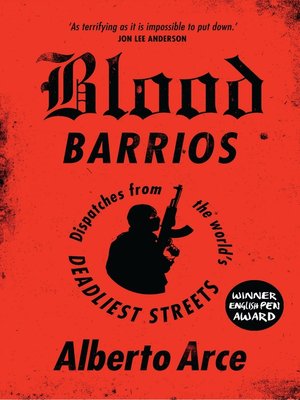
Sign up to save your library
With an OverDrive account, you can save your favorite libraries for at-a-glance information about availability. Find out more about OverDrive accounts.
Find this title in Libby, the library reading app by OverDrive.



Search for a digital library with this title
Title found at these libraries:
| Loading... |
Winner of the 2018 PEN Translates Award for Non-Fiction
Features illustrations by the Honduran artist Germán Andino
Welcome to a country that has a higher casualty rate than Iraq. Wander streets considered the deadliest in the world. Wake up each morning to another batch of corpses – sometimes bound, often mutilated – lining the roads; to the screeching blue light of police sirens and the huddles of 'red journalists' who make a living chasing after the bloodshed. But Honduras is no warzone. Not officially, anyway.
Ignored by the outside world, this Central American country is ravaged by ultra-violent drug cartels and an equally ruthless, militarised law force. Corruption is rife and the justice system is woefully ineffective. Prisons are full to bursting and barrios are flooded with drugs from South America en route to the US. Cursed by geography, the people are trapped here, caught in a system of poverty and cruelty with no means of escape.
For many years, award-winning journalist Alberto Arce was the only foreign correspondent in Tegucigalpa, Honduras's beleaguered capital, and he witnessed first-hand the country's descent into anarchy. Here, he shares his experiences in a series of gripping and atmospheric dispatches: from earnest conversations with narcos, taxi drivers and soldiers, to exposés of state corruption and harrowing accounts of the aftermath of violence. Provocative, revelatory and at time heart-rending, Blood Barrios shines a light on the suffering and stoicism of the Honduran people, and asks the international community if there is more that they can do.






